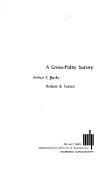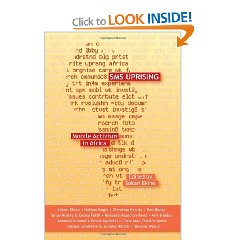
Arthur S. Banks (Author), Robert B. Textor (Author)
![]()
Set a Standard, Modern Version Urgently Needed
December 16, 2010
When I was a graduate student in the 1970's, “Banks & Textor” was the bible, and I could not have done my first graduate thesis on revolution without its inspiration. This reference taught me how to “operationalize” from a pre-condition of revolution (e.g. concentration of wealth) to specific measurable factors within a society (e.g. a mix of per capita income and spread).
As I just wrote in a commentary on the gap between rich and poor in the US,
In the 1970's an era when “whole systems” thinking tried to flourish only to be crushed by the emergent merger of the two-party tyranny and Wall Street, there was a vital comparative international studies reference, “Banks & Textor,” or more properly, Arthus S. Banks and Robert B. Textor, A Cross-Polity Survey (Cambridge, MA: MIT, 1963). We strongly suspect that today the USA would be qualified a failed state, certainly so if the 1% of the population hoarding the bulk of the wealth were isolated as an extraneous factor contributing little of value to the larger economy while siphoning off one fifth of the asset value through legalized financial crime. There is clearly a need for a return of the Banks & Textor model, but with the added sophistication of distinguishing between negative factors of domestic production (excessive concentration of wealth, legalized mortgage clearinghouse, Wall Street derivative, and Federal Reserve fraud, prison factories and prisons, hospitals, and marginalized enterprises among others).
I would love to see a great university somewhere take on the magnificent challenge of recreating this great work, but modernized to include the Internet factor, measures of openness across all fronts (see my Gnomedex ketone, “Open Everything”) and so on.
This book is still priceless, it was the gold standard in its time, we need it now more than ever, but completely redone and modernized.

See Also:


